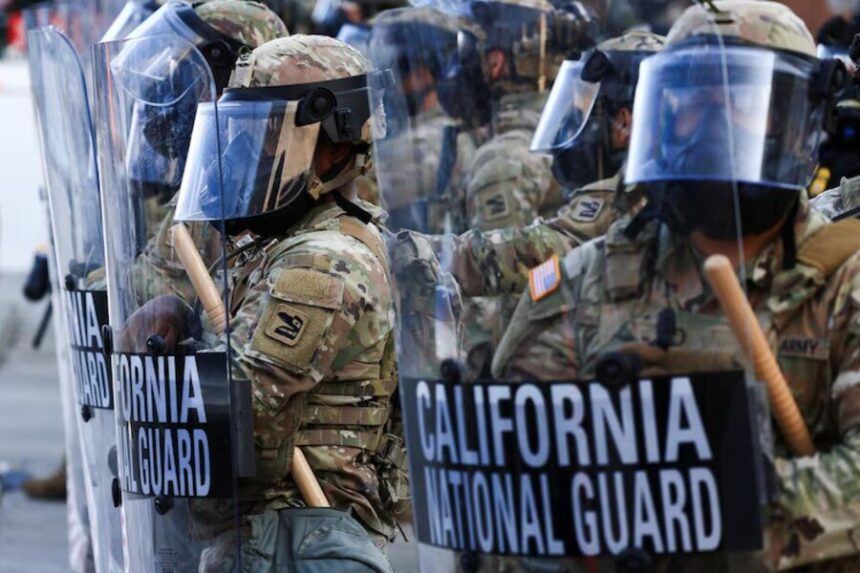A critical legal showdown over the limits of presidential authority is set to unfold Tuesday as the Ninth Circuit Court of Appeals hears arguments in California’s challenge to former President Donald Trump’s deployment of the National Guard during immigration-related protests in Los Angeles.
The remote hearing comes just days after U.S. District Judge Charles Breyer issued a temporary restraining order declaring Trump’s actions “illegal” and in violation of the Tenth Amendment. That ruling would have returned control of the California National Guard to Governor Gavin Newsom, who had not consented to the deployment. However, the Trump administration appealed the decision, and a three-judge panel of the Ninth Circuit—comprised of two Trump appointees and one nominated by President Joe Biden—granted an administrative stay, temporarily pausing the lower court’s order.
At issue is whether Trump lawfully exercised his power as Commander in Chief when he activated roughly 4,000 National Guard members and 700 U.S. Marines in Los Angeles following widespread demonstrations opposing immigration raids. California officials argue the deployment was unjustified, escalated tensions, and sidestepped constitutionally required procedures.
In his June 12 ruling, Judge Breyer asserted that the President had bypassed congressional mandates, writing, “His actions were illegal — both exceeding the scope of his statutory authority and violating the Tenth Amendment to the United States Constitution. He must therefore return control of the California National Guard to the Governor of the State of California forthwith.”
Governor Newsom welcomed the ruling, saying in a press briefing, “I was gratified by the court’s decision. We’ll return the National Guard to what they were doing before Donald Trump commandeered them.”
The federal government’s legal team responded forcefully, calling Breyer’s order “unprecedented” and an “extraordinary intrusion on the President’s constitutional authority.” They emphasized the administration’s belief that the President holds broad powers during moments of domestic unrest, particularly when national security or immigration enforcement is at stake.
While the court order blocks the use of the National Guard under federal command, it does not affect the deployment of U.S. Marines, who remain active in the Los Angeles area.
Tuesday’s hearing is expected to address key constitutional questions surrounding the federal-state balance of power. The outcome may determine how far a president can go in asserting control over state National Guard units without gubernatorial approval. Legal analysts suggest the case could have wide-reaching consequences for future presidential deployments of military force on U.S. soil, particularly in politically sensitive situations.
Should the Ninth Circuit side with California, it would mark a significant limitation on federal authority in favor of state sovereignty. Conversely, a ruling in favor of the Trump administration could set a new precedent for unilateral executive control in domestic military mobilizations.
The court’s decision—whether it upholds the restraining order or continues the stay—will shape the conversation around the militarization of protest responses and the constitutional role of state leaders during national crises. Further appeals are likely, and the case could ultimately land before the U.S. Supreme Court, ensuring that the legal debate continues well beyond today’s hearing.




